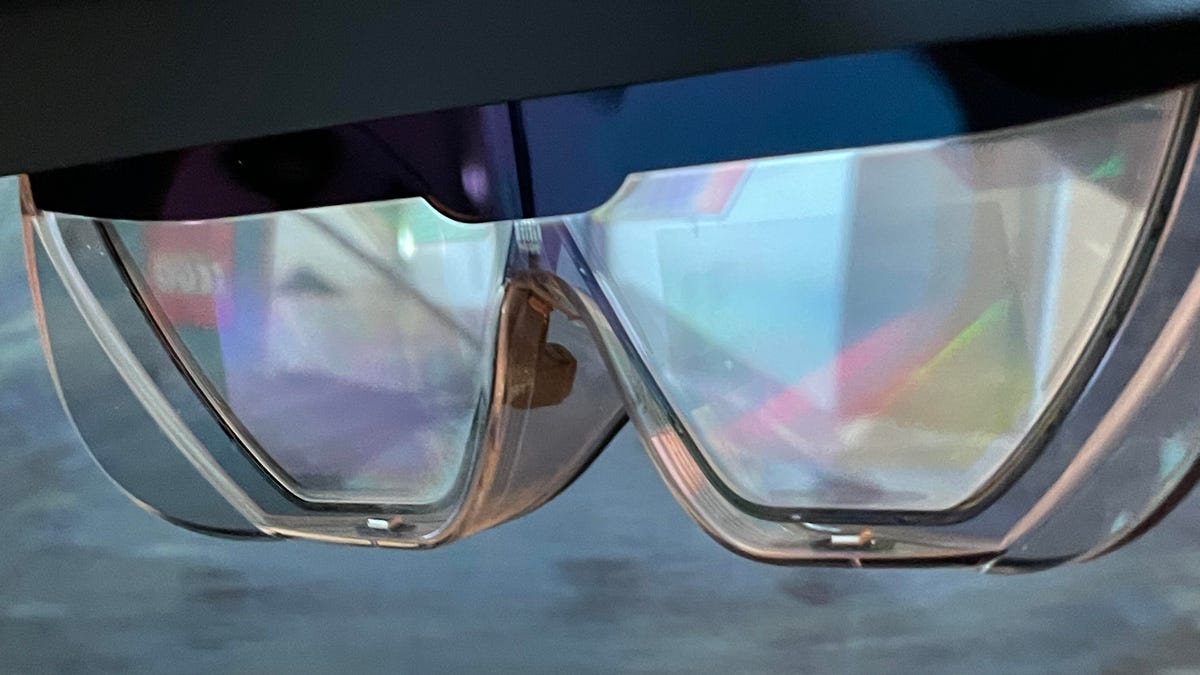Qualcomm and Microsoft are partnering on chips for future AR glasses
The news points to Microsoft looking to shrink the HoloLens 2 down to new products that could connect with phones.

The HoloLens 2, which has been out for years, is expensive and large. Microsoft may be aiming for smaller-scale products soon.
Microsoft's HoloLens 2 AR headset already uses Qualcomm chips. Its future AR glasses will, too. Qualcomm and Microsoft on Tuesday announced a partnership at this year's CES 2022 conference, pointing toward new custom chips for future AR glasses. Future products using the custom chips will aim to blend Microsoft's mixed reality software with Qualcomm's phone-based AR platforms.
The partnership, according to Qualcomm, is also integrating software platforms. Microsoft already has its cross-device Microsoft Mesh VR/AR ecosystem, along with its Windows Mixed Reality platform, and is integrating Teams into VR and AR this year. But Qualcomm is working on a software platform for phones, called Snapdragon Spaces, that plans to bridge a coming wave of AR glasses and Android phones.
Qualcomm's enabling phone-connected smart glasses this year, using a software platform called Snapdragon Spaces.
Smart glasses in general are still very much a work in progress, but one of the key things that's still needed for these types of devices is a common software platform. That sounds like exactly what this Qualcomm partnership aims to solve.
According to Qualcomm's press release, the collaboration will involve "developing custom AR chips to enable a new wave of power efficient, lightweight AR glasses to deliver rich and immersive experiences, and plans to integrate software like Microsoft Mesh and Snapdragon Spaces XR Developer Platform." Whether that means Microsoft's future AR glasses will have additional powers beyond others in Qualcomm's planned lineup of products isn't entirely clear, but it does suggest that a common connecting thread between future AR products may already be forming. Of course, that's exactly what the whole "metaverse strategy" that seems to be in play everywhere right now has needed all along.
Microsoft had already been exploring using the HoloLens 2 in more outdoor situations as a stepping-stone to future smaller glasses-like devices. Last year, the company announced an explorational partnership with Niantic as a way to explore how gaming would eventually work on smart glasses.

